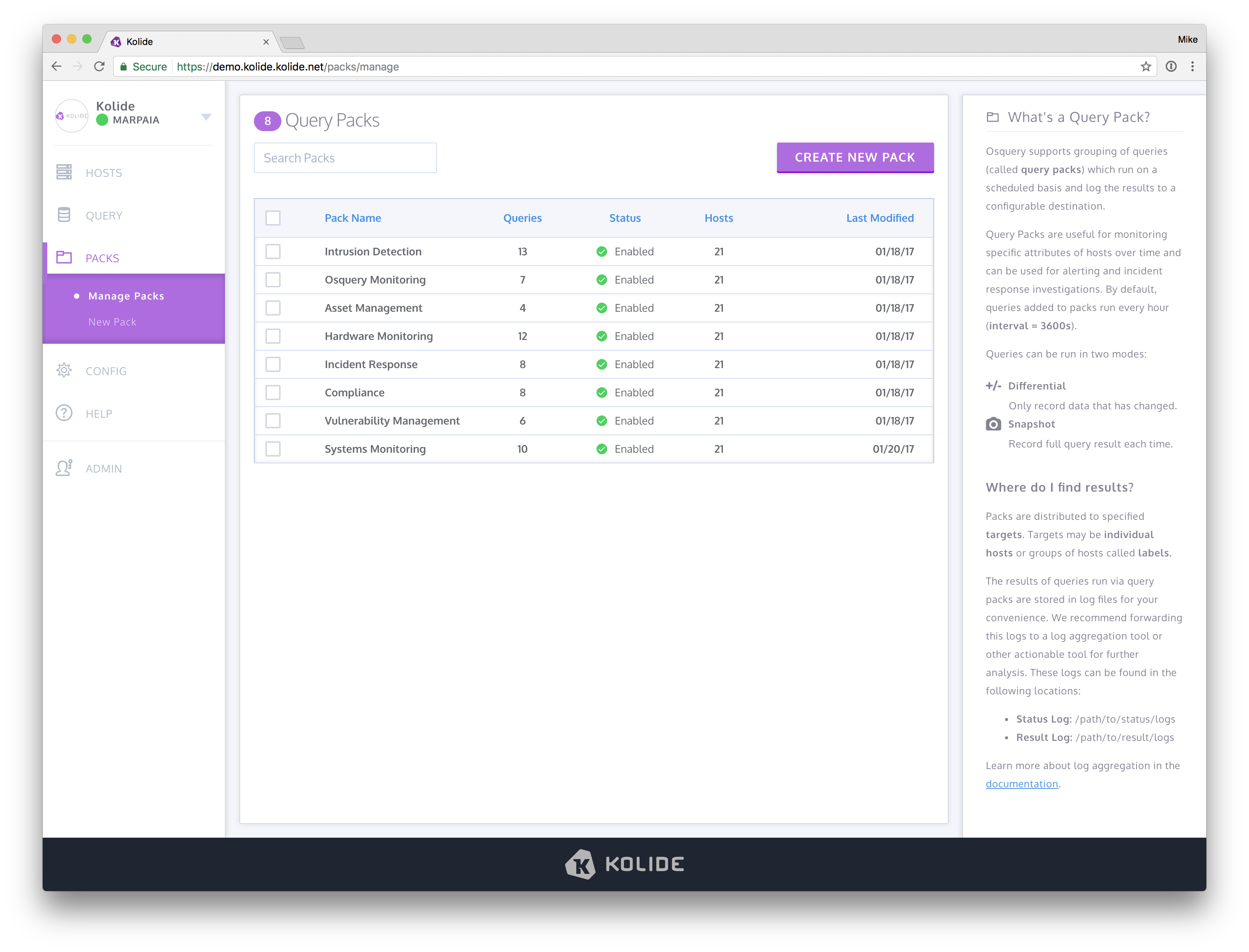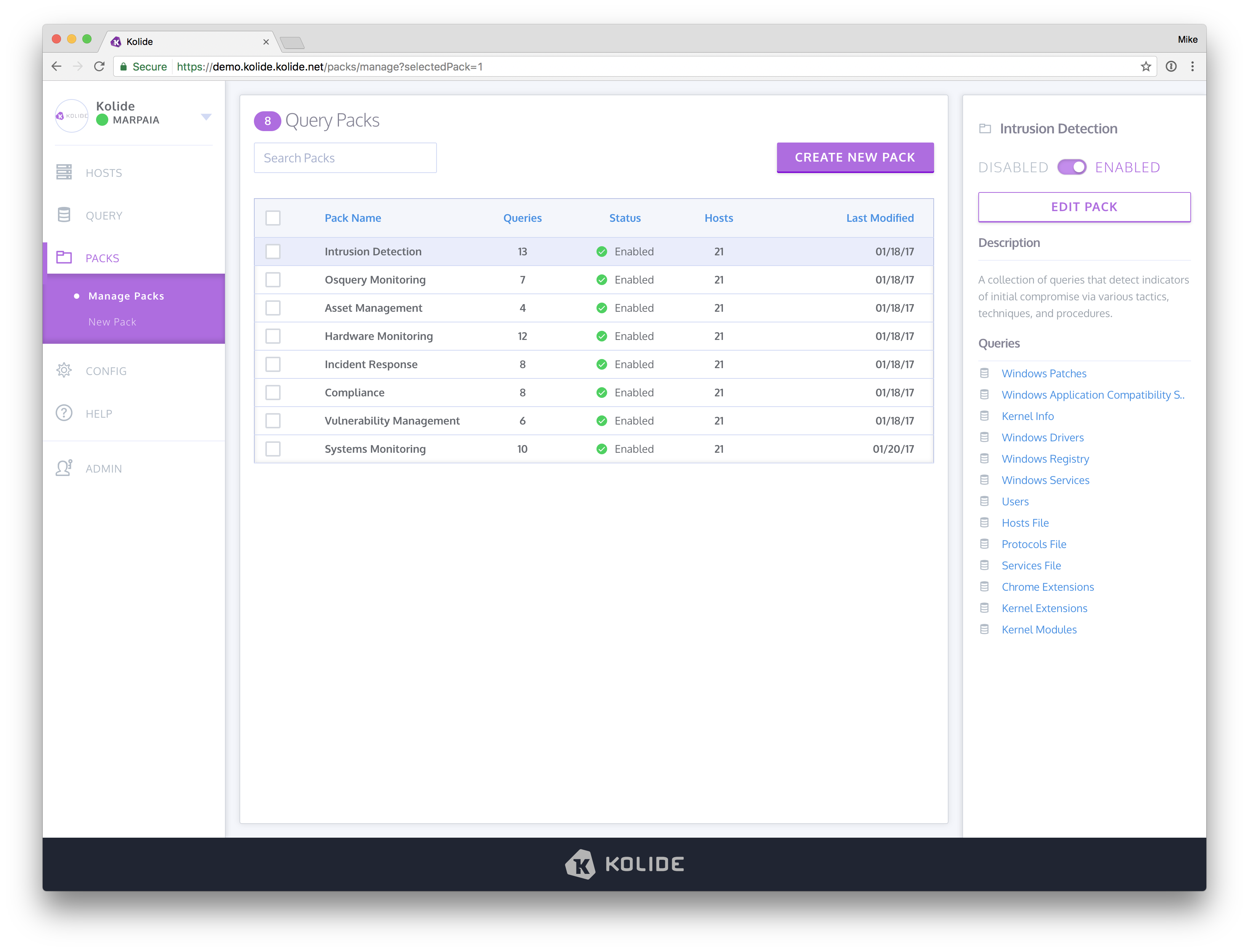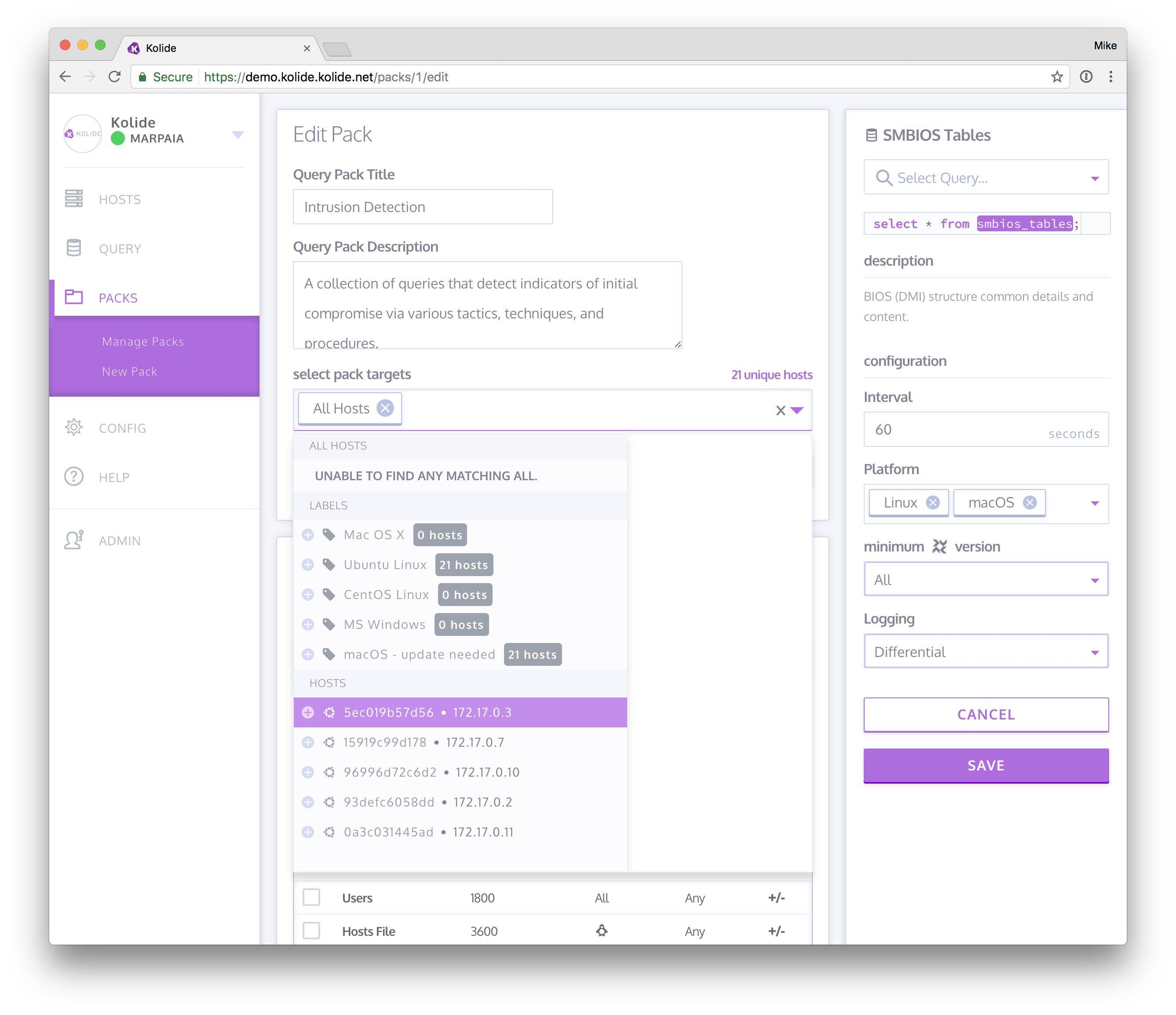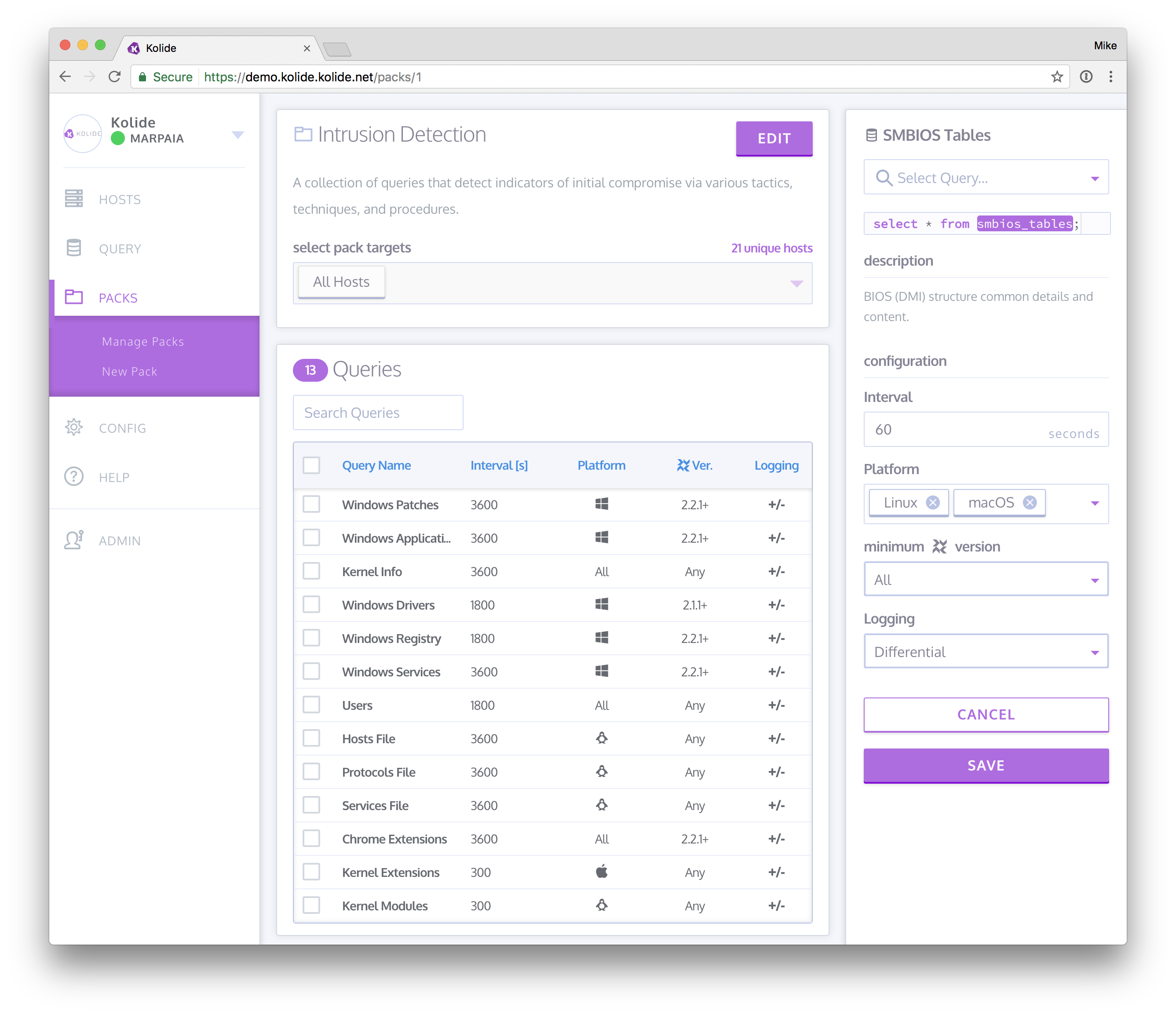1.7 KiB
Scheduling Queries
As discussed in the Running Queries Documentation, you can use the Fleet application to create, execute, and save osquery queries. You can organize these queries into "Query Packs". To view all saved packs and perhaps create a new pack, select "Manage Packs" from the "Packs" sidebar. Packs are usually organized by the general class of instrumentation that you're trying to perform.
If you select a pack from the list, you can quickly enable and disable the entire pack, or you can configure it further.
When you edit a pack, you can decide which targets you would like to execute the pack. This is a similar selection experience to the target selection process that you use to execute a new query.
To add queries to a pack, use the right-hand sidebar. You can take an existing scheduled query and add it to the pack. You must also define a few key details such as:
- interval: how often should the query be executed?
- logging: which osquery logging format would you like to use?
- platform: which operating system platforms should execute this query?
- minimum osquery version: if the table was introduced in a newer version of osquery, you may want to ensure that only sufficiently recent version of osquery execute the query.
- shard: from 0 to 100, what percent of hosts should execute this query?
Once you've scheduled queries and curated your packs, you can read our guide to Working With Osquery Logs.



